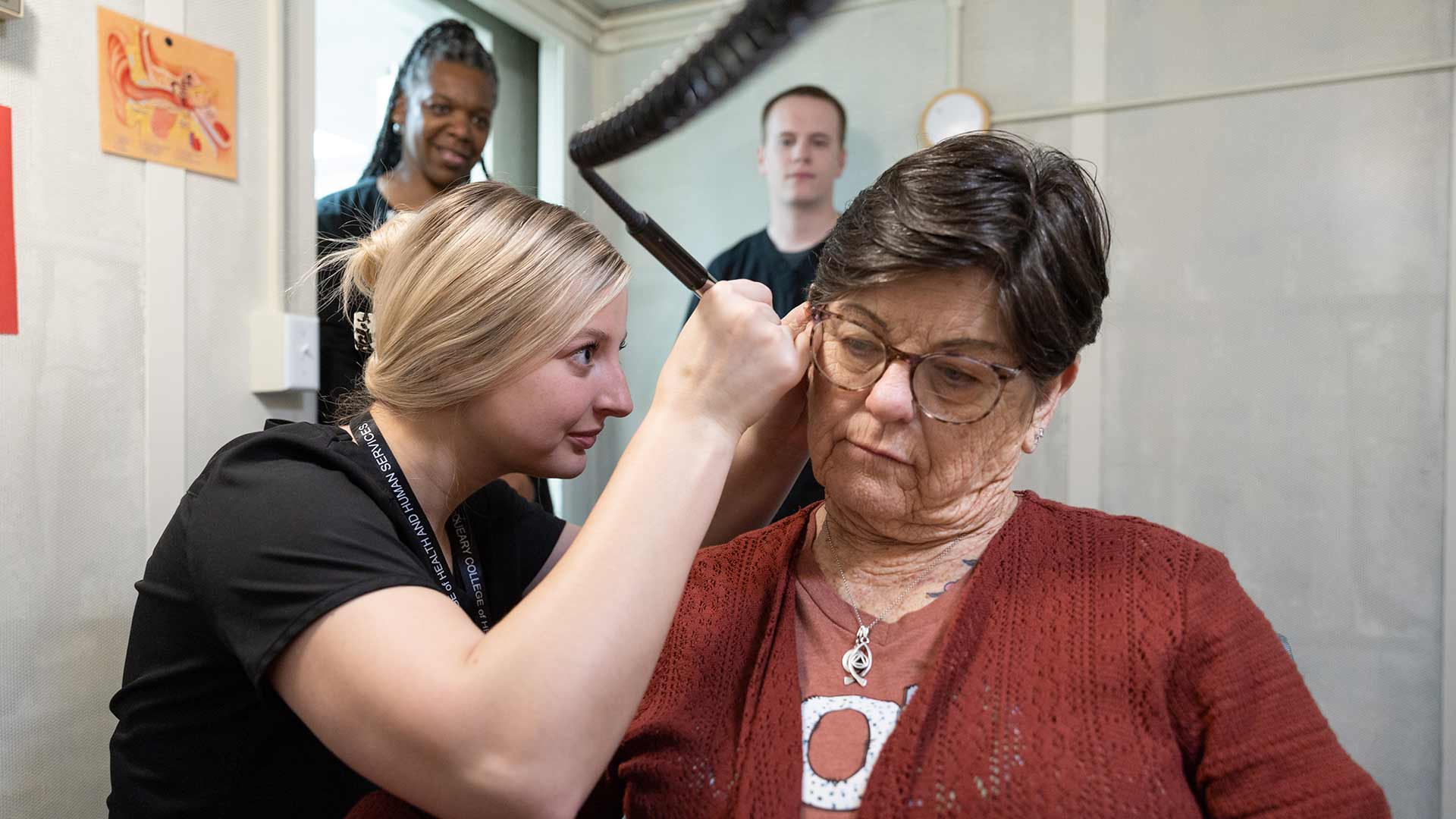Careers and Outcomes

Tune in to a great career
Have you heard? Audiology careers are on the rise.
What is an audiologist?
As the country ages, there’s a growing need for hearing health.
Audiologists provide this vital service. They oversee hearing, balance and neural systems for patients of all ages.
The main job duties include:
- Measure range of hearing.
- Diagnose and treat hearing and balance issues.
- Design and install new safety and screening programs.
- Make recommendations for hearing aids, implants, surgery, etc.
Job market for audiologists
As an audiologist, you can expect good pay and a bigger demand for your services.
16%
How to become an audiologist
To become an audiologist, you need the proper education, training and credentials.
Here are the key steps:
1. Complete your education
Earn a doctorate degree (PhD, AuD or PhD/AuD) in audiology.
Before that, earn a bachelor’s degree – preferably in communication sciences and disorders or a related field.
2. Complete your one-year externship
Your externship occurs in the fourth year of your doctorate program, once you’ve finished your classes. You’ll work with your advisor to find an approved externship site, such as a hospital or clinic.
At your externship, you get to take what you’ve learned in class and apply it in real settings. Professional audiologists are there to guide you.
3. Pass the Praxis exam
The Praxis exam tests your expertise and determines if you’re ready to meet the professional standards of an audiologist.
4. Apply for licensure and (optional) certification
You must hold an audiology license in the state you choose to work.
You can also choose to earn ASHA certification, which gives you a recognized credential of excellence. This is the Certificate of Clinical Competence in Audiology (CCC-A).
Missouri State's audiology program will help you become qualified for licensure and certification.
Where do audiologists work?
Health care sites are the most common workplace.
These include:
- Clinics
- Hospitals
- Inpatient/Outpatient care
- Medical offices
- Private practices
- Rehabilitation centers
Want to branch out from health care? You can work around audiology in other roles, too.
- Business (sales, training and marketing)
- Government (health department positions)
- Education (research and/or teaching)